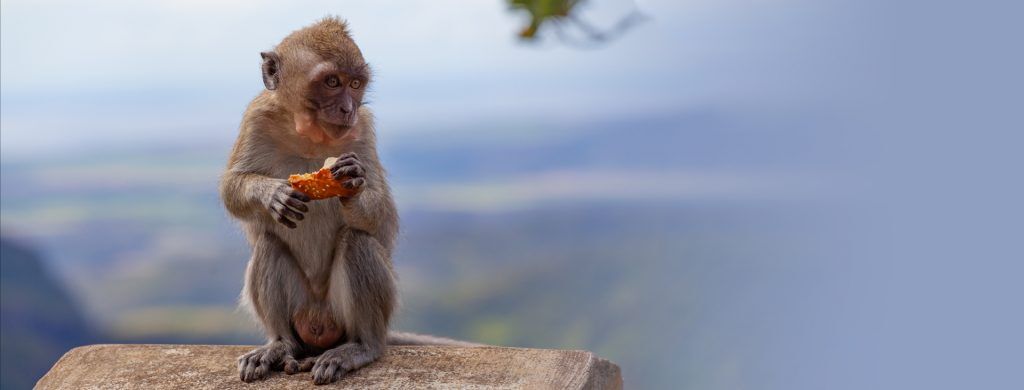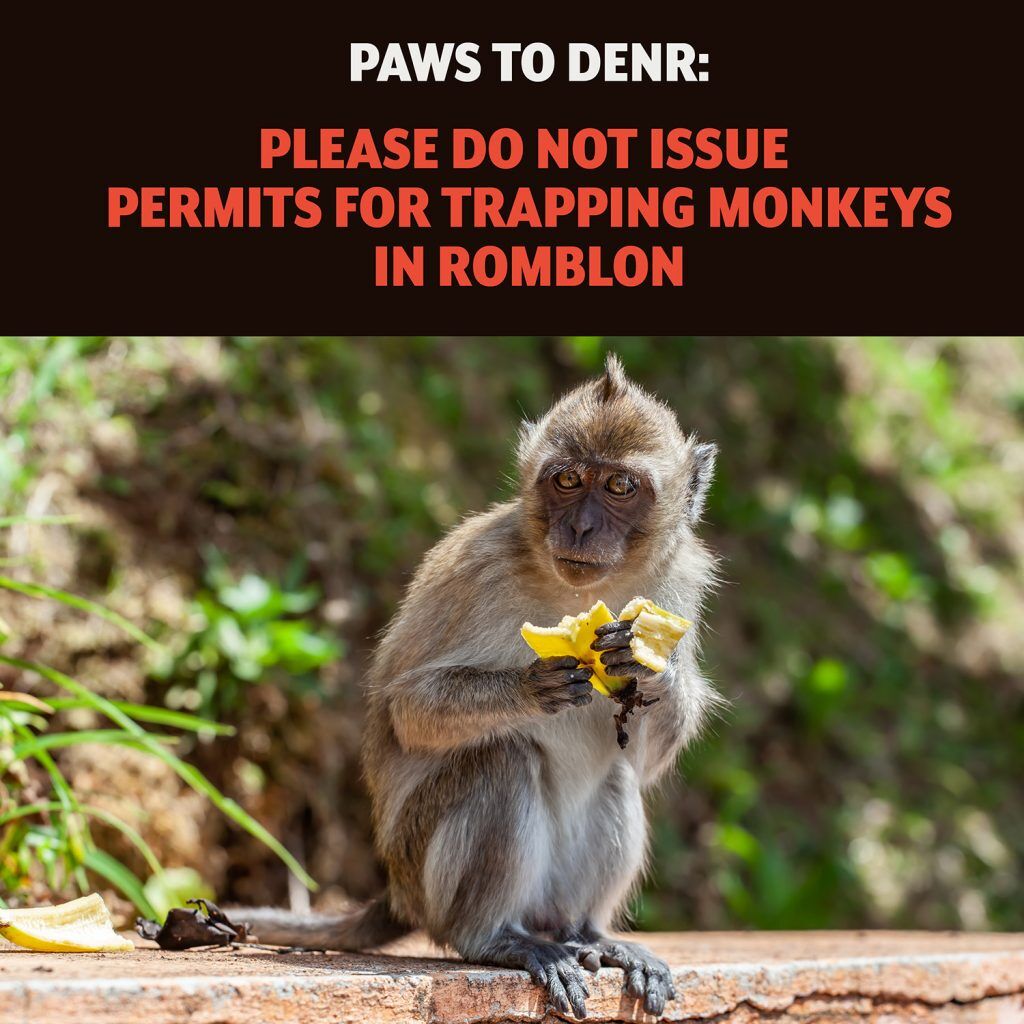

PAWS’ Plea to DENR: Please Do Not Issue Special Permits to Trap Wild Monkeys of Romblon for Research
The call comes following reports that the DENR is considering an application that, if granted, would allow monkeys to be captured for breeding farms that supply and export monkeys for experiments and testing.
The primate species in question is the long-tailed macaques (Macaca fascicularis spp. philippensis). However, according to the most recent assessment by the International Union for Conservation of Nature’s (IUCN) Red List of Threatened Species, this sub species of the long-tailed macaque (Macaca fascicularis) is listed as ‘Near Threatened’ with a population that is decreasing. Threats identified for the decline in this species were given as hunting and habitat loss. Also, as a species listed under Appendix II on CITES, the Philippines, as a signatory to CITES, has a responsibility to safeguard the conservation status of Macaca fascicularis spp. philippensis.
“The proposed capture of Romblon macaques is inimical to animal welfare and is a direct violation of our country’s Wildlife Resources Conservation and Protection Act (RA 9147) – which strictly prohibits the collection and capture of wildlife in the absence of scientific research on wildlife populations,” said Anna Cabrera, PAWS Executive Director.
One of the reasons given by the DENR for considering an application for the capture of the wild monkeys is conflict arising between people and the macaques. Yet conflict issues are usually due to human activities, such as the destruction and fragmentation of the natural habitat, forcing primates to compete with people over land and resources. One scientific report has stated that “Unsustainable human activities are now the major force driving primate species to extinction” —
[READ] Impending extinction crisis of the world’s primates: Why primates matter
The authors estimate that about 60% of non-human primate species are threatened with extinction and populations of 75% of non-human primate species are decreasing globally because of unsustainable human activities.
Action for Primates, an organization that campaigns globally on behalf of non-human primates, has teamed up with PAWS in appealing to the DENR to seek alternative ways of dealing with the macaques problem in Romblon.
Dr Nedim Buyukmihci, Emeritus Professor of Veterinary Medicine and representative of Action for Primates stated: “There are humane approaches of population control that can be adopted to resolve conflict, without resorting to the capture and removal of wild macaques for research. At a time when there is increasing awareness of the devastating consequences that human activity is having on the natural world, including non-human primates, it is imperative that we learn to co-exist with other species rather than just eliminate them when conflicts arise.”
Commenting on the DENR’s letter-reply to Dr. Buyukmihci (see copy below), Cabrera said, “Contrary to the Department of Environment and Natural Resources (DENR)’s statement that macaques have been ‘introduced’ to the area, locals have confirmed that these primates have been in Banton, Romblon long before human activities, like farming, started there. The question on who encroached on whose land now arises. Activities seen as acts of ‘nuisance’ by these animals are a direct result of our collective failure to protect these primates’ habitats.”
PAWS calls for DENR to reject any application for the capture of the macaques: “It is not too late. We can set things right by taking immediate steps to establish a protected area for macaques and to develop eco-friendly systems within human communities to allow them to live in harmony with wildlife.”
Reference
1. Mayuga, Jonathan L. 2020-04-02. “DENR official sees revival of native monkey farming amid global virus contagion.” BusinessMirror. Accessed 2020-04-06.
2. Ong, P. & Richardson, M. 2008. Macaca fascicularis ssp. philippensis. The IUCN Red List of Threatened Species 2008: e.T40788A10354490. https://dx.doi.org/10.2305/IUCN.UK.2008.RLTS.T40788A10354490.en. ‘The International Union for Conservation of Nature’s Red List of Threatened Species has evolved to become the world’s most comprehensive information source on the global extinction risk status of animal, fungus and plant species.”
3. Estrada, A. et al. 2017-01-18. “Impending extinction crisis of the world’s primates: Why primates matter.” Science Advances 3(1): e1600946
